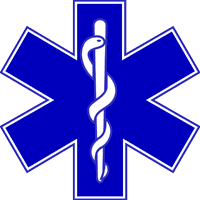WATER TREATMENT 101
Water is the most essential resource in our daily lives. The average American uses more than 50 gallons of water per day for drinking, cooking, and cleaning, and poor-quality water can make all of these tasks more difficult. If you're worried about the quality of your home's water, it may be time to consider installing a water treatment system.
What is Water Treatment?
Water can carry germs, bacteria, and other harmful contaminants, and it's important to make sure it's safe before it reaches your home. Water treatment is the process of removing contaminants from water.
The EPA sets strict regulations for water testing and public water treatment. Community water systems go through several treatment steps, including filtration and disinfection, before the water reaches your home. However, some homeowners use a home water treatment system as an extra precaution.
There are a wide variety of water treatment systems that make your water cleaner and healthier. Some homeowners use a combination of filter systems, and others use just one. The best option for you depends on the current quality of your water and what you want to change about it.
Why Water Treatment is Important
Although the EPA has a legal limit for many contaminants in public and community water supplies, there may still be some contaminants or undesired compounds in the water once it reaches your home. A home water treatment system allows you to remove the specific contaminants that you're worried about. This gives you the peace of mind that you deserve to have in your own home.
Water treatment improves the taste of your water, too. Perfectly safe water can sometimes still have a strange taste, but adding an extra treatment step can make your water taste great.
Water treatment can also help your appliances work more efficiently. According to the Water Quality Research Foundation, water softeners save energy and improve the performance of dishwashers, showers, water heaters, and washing machines.
Types of Water Treatment Systems
There are two main categories of water treatment systems: point-of-entry (POE) and point-of-use (POU). POE devices treat water for the whole house before the water travels to its destination. Here are some of the most common types of POE systems:
- Water softeners: These devices reduce the water's hardness by removing calcium and magnesium. This prevents the minerals from building up around faucets or inside pipes, and it allows soap and detergent to dissolve in the water more easily.
- Ion exchange filters: These systems use resin to trap unwanted ions and release more desirable particles. For example, the filter may remove copper and release sodium. The type of resin varies depending on the specific ions you need to remove.
- Sediment filtration systems: Water filters create a barrier that removes impurities and contaminants from the water. Sediment filters remove particles like sand, dirt, and scale as the water enters the home.
POU systems are installed at water entry points like the kitchen faucet or the showerhead. They serve as the final barrier between you and your water system. The following are types of POU filters:
- Reverse osmosis systems: These systems use pressure to force water through a semipermeable membrane and a few other filters that remove dirt, chlorine, and other contaminants. They can be installed on, in, or under a faucet.
- Inline filters: These filters are attached to the water pipe underneath the sink and can remove small particles of dirt, chlorine, and heavy metals.
- Distillation systems: During distillation, the water is boiled into steam and then collected and condensed back into the liquid. This removes pathogens and other contaminants.
Water quality varies dramatically from city to city. If you're unhappy with your home's water, a treatment system may be the solution. You have many choices for filters and treatment systems, so you should research your options before making a decision. If you have any questions, reach out to Rooter Warrior Plumbing & Drain Cleaning. We’ll be happy to assess your water quality and walk you through your options. To schedule an appointment, call (951) 476-1627.






